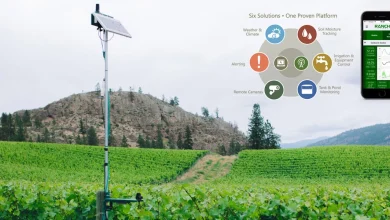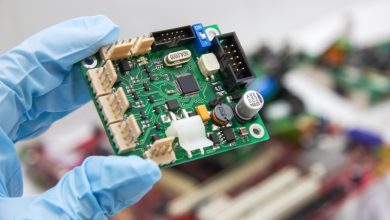
Internet of Things (IoT) refers to the network of interconnected devices. These are embedded with sensors, software, and other technologies that collect and interpret data over the internet. Some examples of such devices include – smart thermostats, motion sensors, HVAC systems, etc.
Using IoT, you gather real-time data across equipment performance, environmental conditions, energy consumption, and more. You use field service management software to analyze these data and draw insights for better facility management.
In this article – we will dive deeper into how you can future-proof your facilities by integrating with IoT-enabled FSM software.
Why consider FSM software with IoT capabilities?
IoT helps you leverage the power of data – which can help you become more productive and future-proof in how you run and manage the facility.
How?
Rather than relying on reactive approaches to maintenance, where issues are addressed only after they occur, IoT-enabled FSM enables proactive strategies that prevent problems before they arise. This further helps facilities anticipate maintenance needs, efficiently schedule tasks, and ultimately enhancing operations to impact the overall performance and longevity of their assets.
For example, it is common for the facility to experience frequent equipment breakdowns, unplanned downtime, or rising maintenance costs. This indicates that it may be time to consider upgrading to a more advanced solution – for which, IoT-enabled workflows are a practical and future-proof option.
5 key IoT-enabled FSM workflows for facility management
1. Automated maintenance scheduling
To truly automate a workflow – you must first know when it needs to be triggered. For example, to trigger a maintenance schedule for equipment, you must first know when it is about to fail. That’s where IoT comes into the picture.
IoT helps collect real-time data from sensors embedded in equipment, and then the FSM software automatically schedules maintenance by assigning relevant workers and resources.
For example, a manufacturing plant can use IoT sensors to monitor the condition of production machinery. When a sensor detects signs of wear or impending failure, the FSM software automatically generates a work order for maintenance technicians to address the issue before it escalates.
2. Track asset performance and location
If you have multiple facilities, then you need to track your asset’s location to effectively plan resources for jobs. Using IoT-enabled field service management software, get real-time visibility into asset location, condition, and usage.
For example, in a warehouse environment, RFID tags or GPS trackers can be attached to equipment or inventory items. These tags communicate with the FSM software, allowing managers to monitor inventory levels. They can track asset movements and optimize storage space efficiently.
3. Energy management and optimization
Commercial energy keeps getting expensive and facilities must adhere to guidelines not just to save cost, but also to be compliant with local regulations. IoT sensors can monitor energy usage patterns and identify opportunities for optimization and cost savings.
For example, in a commercial office building, occupancy sensors regulate lighting and HVAC systems based on occupancy levels. Temperature controllers also help with energy saving.
4. Waste management
Facilities are bound to generate waste – but using IoT you can track waste generated and strategize ways to handle and reduce it. IoT-enabled FSM solutions can automate waste management workflows by tracking waste generation, scheduling pickups, and optimizing waste disposal processes.
For example, in a commercial building, waste bins equipped with IoT sensors can monitor fill levels and trigger notifications when bins are nearing capacity.
5. Maintain environmental conditions like temperature, air quality, etc
Some of your assets may require maintaining certain environmental parameters like temperature, humidity, noise levels, air quality, etc. IoT sensors are essential to track and determine environment quality and potential health hazards.
For example, in a hospitality setting, IoT sensors can monitor patient rooms for air quality fluctuations. If a sensor detects abnormal conditions, the FSM software triggers alerts to maintenance staff. Then, they can take corrective actions to ensure patient comfort and satisfaction.
Future-proof your facility management operations with FSM software
Zuper is a field service management software that will help you leverage real-time IoT-captured data, AI-enabled predictive analytics, and no-code automation for efficient facility management. Embark on a journey from traditional maintenance approaches to enhancing operations and stand-out performance using the latest technologies like AI and IoT — book a demo to learn more.




